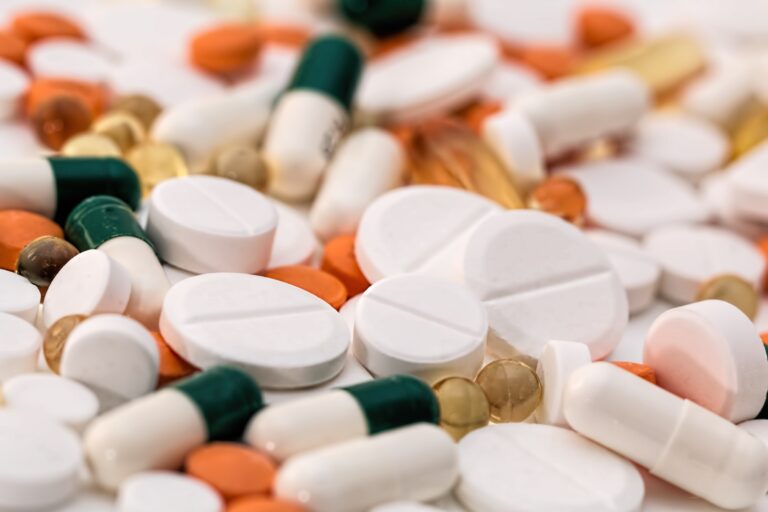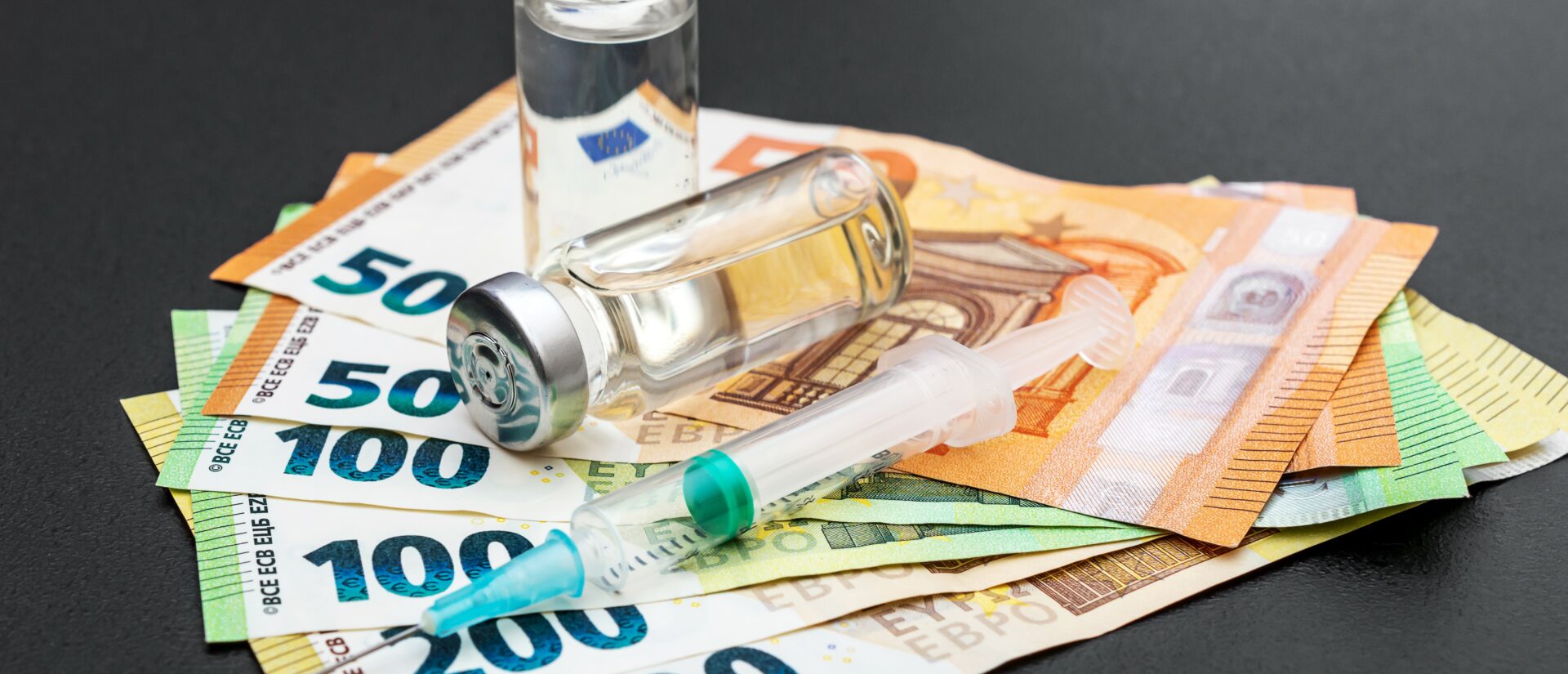
Big Pharma raked in USD 90 billion in profits with COVID-19 vaccines
Pfizer, BioNTech, Moderna, and Sinovac made an extraordinary USD 90 billion in profits on their COVID-19 vaccines and medicines in 2021 and 2022. SOMO’s new report Pharma’s Pandemic Profits shows that these enormous gains are largely due to decades of research funded by public investment, billions in grants for development and production, and tens of billions in Advanced Purchase Agreements (APAs) with governments.
Pfizer alone generated USD 35 billion net profits on its COVID-19 related products during 2021 and 2022. BioNTech and Moderna made USD 20 billion each, while Sinovac pocketed
-
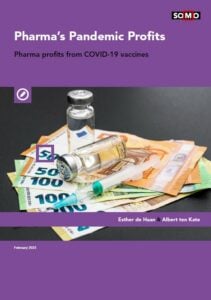 Pharma’s Pandemic Profits (pdf, 744.88 KB)
Pharma’s Pandemic Profits (pdf, 744.88 KB)
As health policy-makers globally review the lessons learned during COVID-19, it is imperative that they agree on strong measures to prevent such extreme profiteering at the expense of tax payers in the future. The Pandemic Accord, a new international instrument on which negotiations start this week(opens in new window) , recognises the need for governments to attach conditions to public funding of medical research and development. However, the draft text published earlier this month falls far short of making conditions on pricing, profit margins, and equitable access mandatory.
“Without mandatory rules here, little will change. Corporate giants will continue to receive unconditional public funding and negotiate perverse deals. Public funding has to serve the public interest, which means affordable and safe medicines that are accessible to all, not super-profits for Big Pharma.”
Billions of public funding and APAs, no strings attached
In the midst of the pandemic, governments spent billions in funding to support vaccine research and development. Seven vaccine producers received at least USD 5.8 billion in public funding, with the US government being the largest funder, providing USD 5 billion. Agreements made did, as far could be established, not include obligations for the companies to return the funds, not even when large profits were made.
The vaccine producers benefitted even more from Advanced Purchase Agreements (APAs), which give upfront financing for development and production while transferring risk from suppliers to buyers. Pharmaceutical companies received at least USD 86.5 billion through these APAs. De Haan: “The exact amount is hard to pin down and could well be much higher because companies and governments have not been transparent about their deals. As far as we could establish, these agreements did not require companies to return money used to develop and produce vaccines, even when development failed, and the vaccine was never delivered.”

COVID-19 Vaccines sold dearly
Despite receiving huge sums through publicly-funded grants and APAs and making substantial profits from the outset, Pfizer/BioNTech and Moderna chose to increase the price of their vaccines by 56% and 73% respectively between 2020 and 2022. As fewer vaccines will be sold in the years to come, both companies have already announced to quadruple their latest known prices this year in an apparent bid to maintain great profitability.
Vaccine inequity
The report concludes that governments and international organisations must ensure that the benefits of public investment in research and development, as well as production, do not lead to such exorbitant profits and are shared more equitably, particularly with low-income countries. De Haan: “Companies have blatantly gone for profits and have been favouring deals with high-income countries, that would pay a higher price per dose. Governments of high-income countries have been pushing out low-income countries as well, by making deals with all the vaccine producers and claiming more vaccines than they needed.”
Symptom of systemic crisis
This month, the massive profits raked in by oil majors such as Shell and Exxon and food multinationals such as Unilever and Ahold-Delhaize have been at the forefront of the news. At a time when ordinary people are struggling with rising costs of living, Big Oil and Big Food are getting super wealthy, and so is Big Pharma. While the oil majors make money from driving climate change and profit from a war-related economic disruption, and food multinationals take advantage of inflation to artificially raise their prices, the pharmaceutical companies profit from a global pandemic and through an enormous influx of public money. These massive profits of big business are deepening wealth inequality across the globe.
Do you need more information?
-

Esther de Haan
Senior Researcher
Related content
-
Pharma’s pandemic profits Published on:
 Esther de HaanPosted in category:Publication
Esther de HaanPosted in category:Publication Esther de Haan
Esther de Haan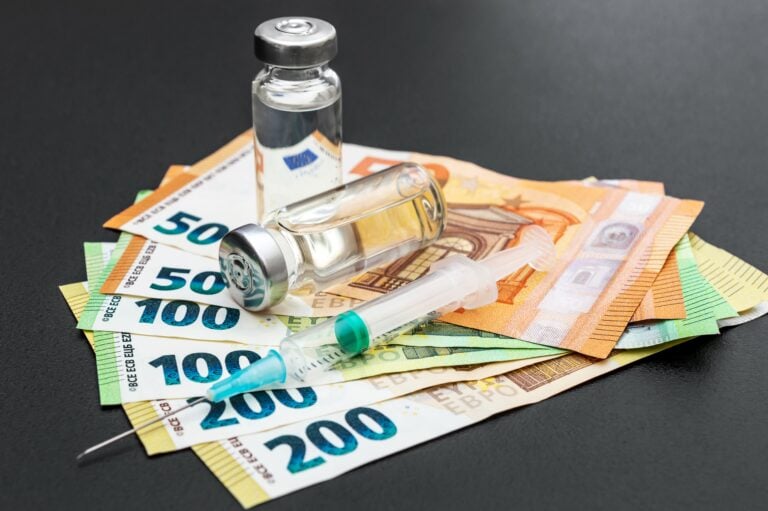
-
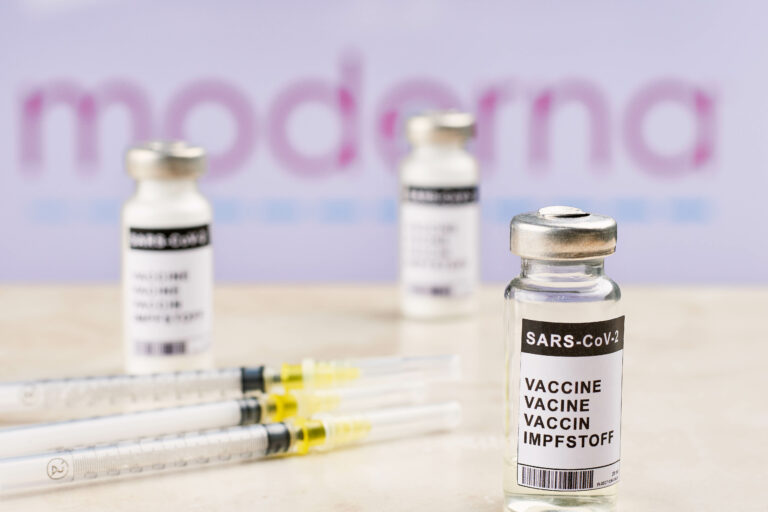
-
 Moderna vaccine profits channelled to tax havensPosted in category:News
Moderna vaccine profits channelled to tax havensPosted in category:News Vincent KiezebrinkPublished on:
Vincent KiezebrinkPublished on: -
Global vaccine scarcity unnecessary if pharma shares knowledgePosted in category:Published on:Statement
-
Transparency is a fundamental pillar for the success of the EU Vaccines StrategyPosted in category:Published on:Statement
-
The earnings model of the pharmaceutical industry needs to be overhauledPublished on:Posted in category:Opinion
-
We Can’t Afford Big Pharma’s GreedPosted in category:Opinion
 Rodrigo FernandezPublished on:
Rodrigo FernandezPublished on: Rodrigo Fernandez
Rodrigo Fernandez -
Private gains we can ill afford Published on:
 Rodrigo FernandezPosted in category:Publication
Rodrigo FernandezPosted in category:Publication Rodrigo Fernandez
Rodrigo Fernandez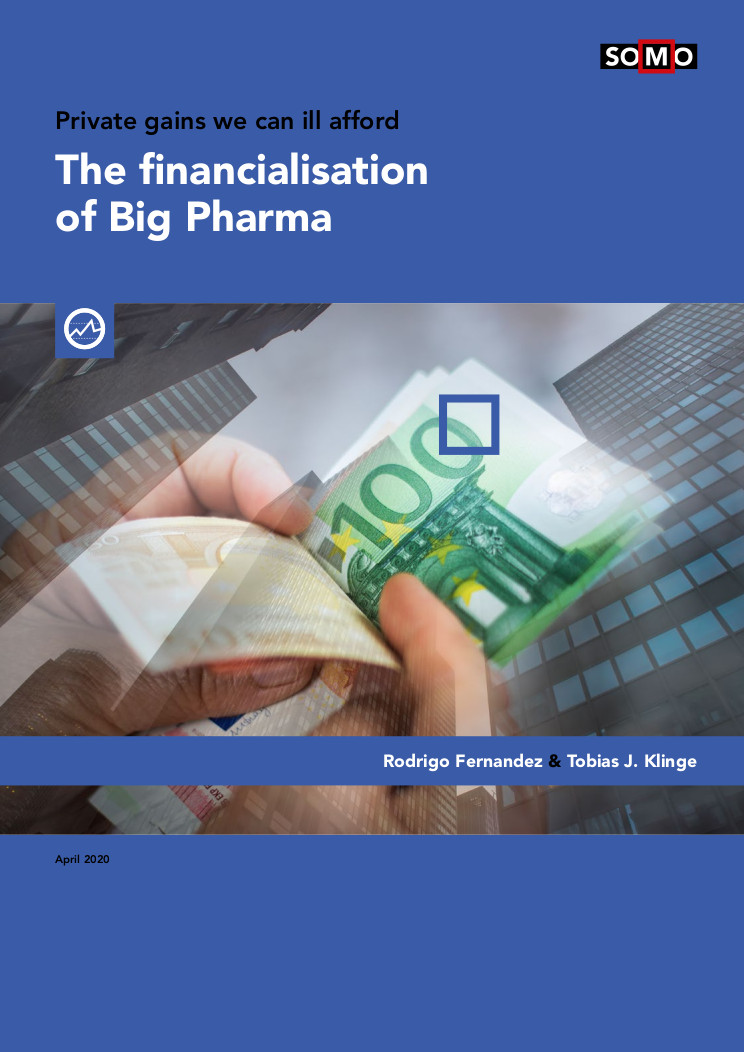
-
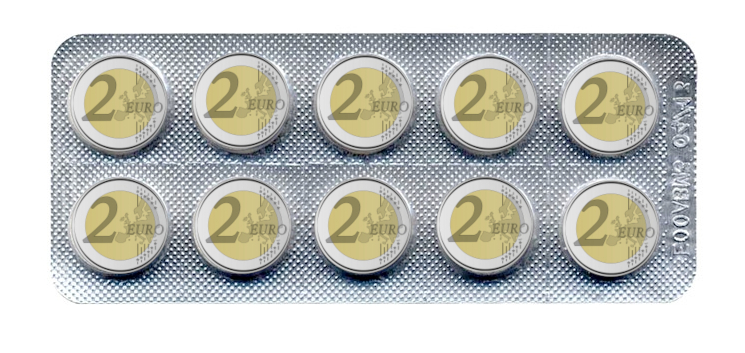 SOMO reveals the financialisation of the pharmaceutical industry and the potentially deadly costsPosted in category:NewsPublished on:
SOMO reveals the financialisation of the pharmaceutical industry and the potentially deadly costsPosted in category:NewsPublished on: -
Taming big Pharma Published on:
 Joseph Wilde-RamsingPosted in category:Publication
Joseph Wilde-RamsingPosted in category:Publication Joseph Wilde-Ramsing
Joseph Wilde-Ramsing